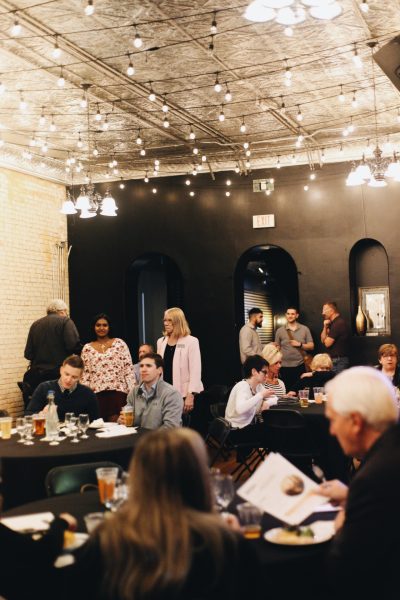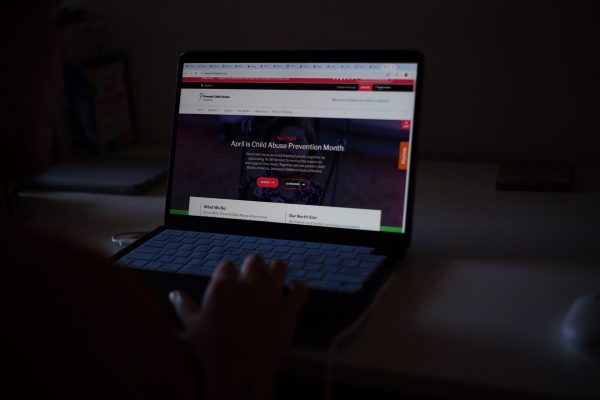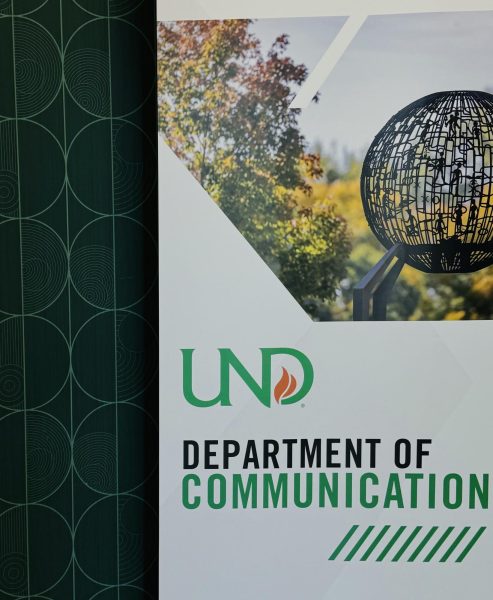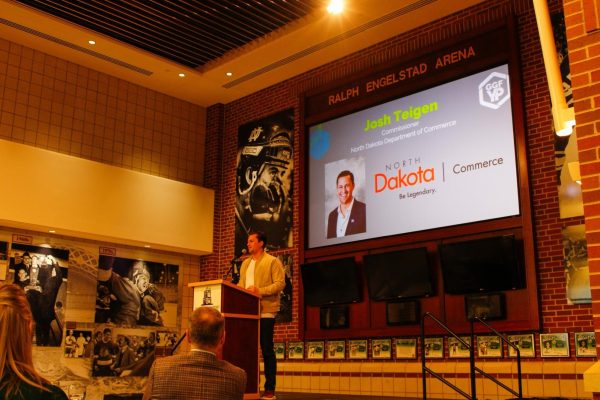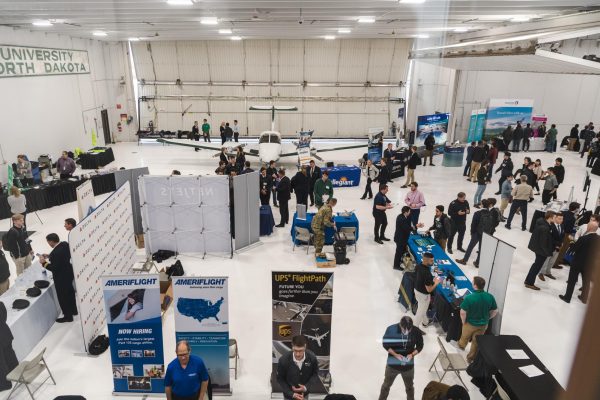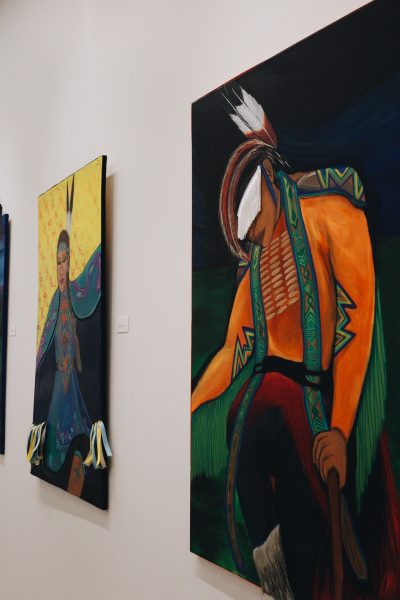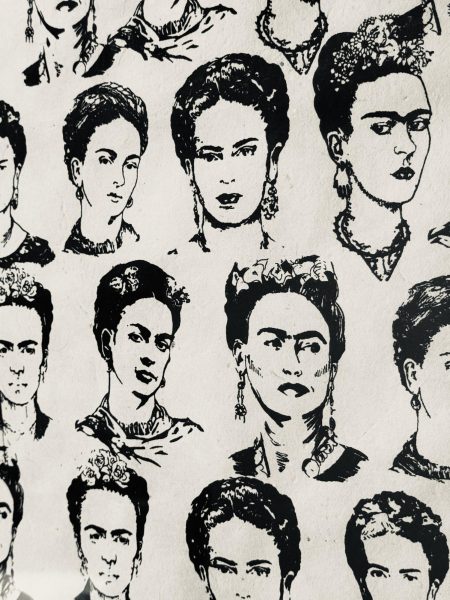Schafer embraces UND presidency
Although he will be leaving his position at the end of June, Interim President Ed Schafer’s vision for the university extends much further down the road.
“It’s always a journey, and you start any journey by taking the first step down the path,” Schafer said. “We have what I call a launching pad for the next president to shape this university going forward instead of always playing catchup.”
Schafer acknowledged that when he leaves at the end of June, it will be up to incoming president Mark Kennedy to continue to forge the path for the university.
“We are embarking on that process, but I’m not going to be anywhere near when it gets finished,” Schafer said.
Looking back to the beginning of his tenure in January, Schafer said that a few things surprised him at UND, including the perception of UND from the outside and the governor’s allotment in February.
“When I arrived on campus, I realized there were three or four years of the public off-campus not really understanding the quality and excellence that was here, you know so wrapped up in the nickname controversy,” Schafer said, noting that many achievements and projects at UND had been overshadowed in the media and public perception.
The university already had a $5 million dollar shortfall when Schafer arrived, and there was an additional $9.5 million shortfall to the university and $3.1 million to the medical school after the governor’s allotments in the wake of lower than projected state revenue in February.
“So while I came knowing we had a budget problem, and one that we were going to fix and I was asked by chancellor to fix, we had that compounded,” Schafer said. “That kind of threw a wrench in the works as to not only the need to fix it and the time to fix it.”
Decisions
Schafer has taken some flak over the past several weeks over the decisions the university has made regarding certain programs – notably music therapy, Studio One, golf and baseball teams – and the relatively accelerated process of the budget decisions. Additionally, concerns were raised at last week’s budget forum that the university administration was relatively unscathed by the cuts compared to spending in other areas.
“You have to be willing to make the decisions, because too often if you don’t, then you get in the position that University of North Dakota is in,” Schafer said. “We are going through this pain and difficulty today here at UND, but I know five years from now, this university is going to be at the top of the heap.”
In regards to dealing with policy disagreements with people, Schafer referenced a quote from Thomas Aquinas: “We must love them both, those whose opinions we share and those whose opinions we reject, for both have labored in the search for truth, and both have helped us in finding it.”
Schafer credited being out among students with giving him a perspective about how they view the changes going on around school.
“I’m out and about. I think that’s important to get the sense of what students are looking for,” Schafer said. “You understand that when you are making the decisions, when you remove or suspend a program, the students in the program get affected. But if you can get through this very difficult time, you can generate the dollars to focus on making the learning experience better.”
Past and Present
A recent master planning report announced that maintenance over the next decade will total $506 million at UND. Schafer said that paying for these projects over the next several years would require that the university has its fiscal house in order.
“If we do that, then you start to build back the trust with the legislature,” Schafer said. ”Because they say ‘we give you money, you deal with it properly.’ Not only do you generate the ability to pay, but you generate the trust in the legislature for the future.”
This perspective on the legislature is something that Schafer brings from his experience as governor of North Dakota from 1992 to 2000. It was a time that the state also faced budget difficulties, and Schafer has often compared the work he did as governor to the task in front of him as university president. This included times when he had to make budget decisions that were unpopular with some, but he said that this is part of the job.
“That’s hard, and a lot of people don’t like that,” Schafer said. “So when you make those decisions, they don’t like the very decisions that they themselves couldn’t make.”
Schafer said that it was a combination of the state of government at the time and the ability to apply the skills he possessed that first prompted him to pursue a position in public service when he ran for governor.
“You can’t run government as a business, for sure,” Schafer said. “But it seems to me that the experience, the attributes of knowing how to budget, administer and manage, those are attributes of a business person that I think can be applied to the public sector.”
Family and Future
Schafer said his wife Nancy played an instrumental role in his decision to accept the position as interim president, and she has enjoyed her time as First Lady of UND.
“She’s been speaking to various groups and been out and about on campus, she’s loving it,” Schafer said.
Schafer said that after he is finished as UND’s interim president, he and Nancy will return to serving on a variety of boards, working with several startup companies and spending time with their thirteen grandchildren.
There is still more work to be done at the university as Schafer’s time as interim president nears its end, but he said that he will miss his role when his contract ends in June.
“I didn’t expect it, but I suppose because it’s my school, because I went here, we both got attached faster and harder than I thought.”
Sean Cleary is the former editor-in-chief for The Dakota Student. He can be reached at [email protected]


